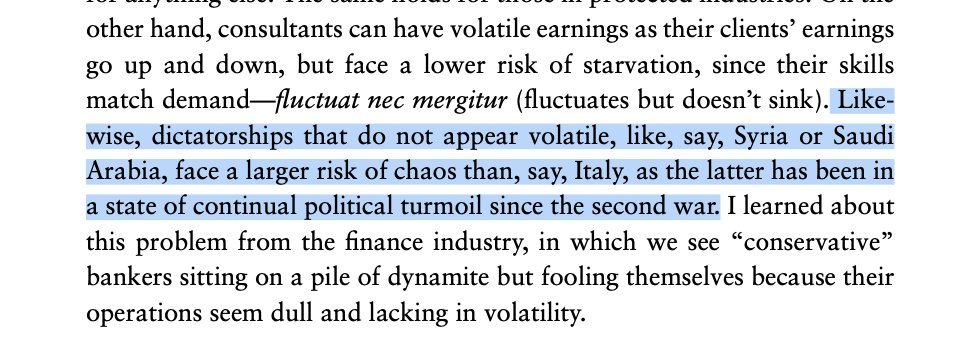Sublime
An inspiration engine for ideas
knowledge itself on its head. Note that the Black Swan comes from our misunderstanding of the likelihood of surprises, those unread books, because we take what we know a little too seriously. Let us call an antischolar—someone who focuses on the unread books, and makes an attempt not to treat his knowledge as a treasure, or even a possession, or
... See moreNassim Nicholas Taleb • The Black Swan: The Impact of the Highly Improbable (Incerto Book 2)
Nassim Nicholas Taleb • Incerto 4-Book Bundle


I recently read a bestseller called The Millionaire Next Door, an extremely misleading (but almost enjoyable) book by two “experts,” in which the authors try to infer some attributes that are common to rich people.
Nassim Nicholas Taleb • Fooled by Randomness: The Hidden Role of Chance in Life and in the Markets (Incerto Book 1)
But not to worry, if we do not decentralize and distribute responsibility, it will happen by itself, the hard way: a system that doesn’t have a mechanism of skin in the game, with a buildup of imbalances, will eventually blow up and self-repair that way. If it survives.
Nassim Nicholas Taleb • Skin in the Game: Hidden Asymmetries in Daily Life
“Nassim has written books that I think people will be reading a thousand years from now. His new book Skin In The Game is fantastic, it’s part five in his Incerto series which includes Fooled by Randomness, Black Swan, Antifragile, The Bed of Procrustes. It’s written in a very timeless way, the concepts are very simple, there’s not a lot of math... See more
Nassim Taleb & Naval Ravikant at BlockCon 2018—Transcript
Nassim Taleb explained: “True success is exiting some rat race to modulate one’s activities for peace of mind.” I like that.